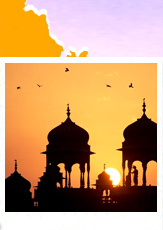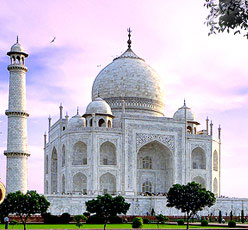To know about the major diseases and vaccinations for India travelers, read the following paragraphs:
Vaccinations for Indian Travel
Before embarking on your India vacations, you must make yourself familiar with different diseases that are common in Indian climatic conditions. In addition to that you should also consult your physician before going for any vaccination or medicine. Here is a comprehensive list of all the diseases that are common to India and vaccinations for them.
Hepatitis A
Hepatitis A vaccination is recommended for all travelers to India.
Typhoid
All travelers are recommended to take Typhoid vaccination.
Polio
In case of Polio, one-time booster is recommended for any adult traveler who completed the childhood series but never had polio vaccine as an adult.
Yellow Fever
Vaccination for yellow fever is required only for travelers arriving from or transiting through any yellow-fever-infected area like Africa.
Japanese Encephalitis
This vaccine is recommended for travelers staying for more than 1 month and traveling to rural areas or travelers engaging in extensive unprotected outdoor activities in rural areas, especially after dusk.
Hepatitis B
Travelers who may have intimate contact with local residents should take this vaccination, especially if their period of stay is more than 6 months.
Rabies
Any traveler who may have direct contact with animals should take sthis vaccination.
Measles, Mumps, Rubella (MMR)
If any person born after 1956 has not previously taken this vaccination, he/she should take two doses of the same.
Tetanus-Diphtheria
You need to take this revaccination every 10 years.
Major Diseases in India
Planning a trip to India and worried about common diseases in India? To make your India visit truly memorable, we are highlighting some of the major diseases that occur in India.
Diarrhea
The most common ailment of travelers is diarrhea. The main cause of it is unclean food and water. It is advised to carry an antibiotic and an anti diarrhea drug if significant diarrhea occurs. In case of diarrhea, good amount of fluid intake is required. However, if diarrhea gets severe you should immediately call a doctor.
Malaria
Prophylaxis with mefloquine (Lariam), atovaquone/proguanil (Malarone) or doxycycline is recommended throughout India (including Delhi and Bombay), except at places located at high altitudes (2000 m/6561 ft).Long-term travelers coming to India may not have access to medical care all the time; they should bring along medications for emergency self-treatment in case they develop symptoms indicative of malaria, such as fever, headaches, chills and muscle aches. It is importhant to note that symptoms of malaria sometimes may not occur for months or even years after exposure.
Altitude Sickness
Altitude sickness may occur in travelers ascending altitudes greater than 2500m. This specifically includes the mountain areas of northern India. Those with a history of heart disease, lung disease, or sickle cell disease are advised to avoid high altitudes.
India travel vaccinations is a window into the diseses and vaccinations for India travel.
Travel to India: India Travel Tips: India Travel Vaccinations








